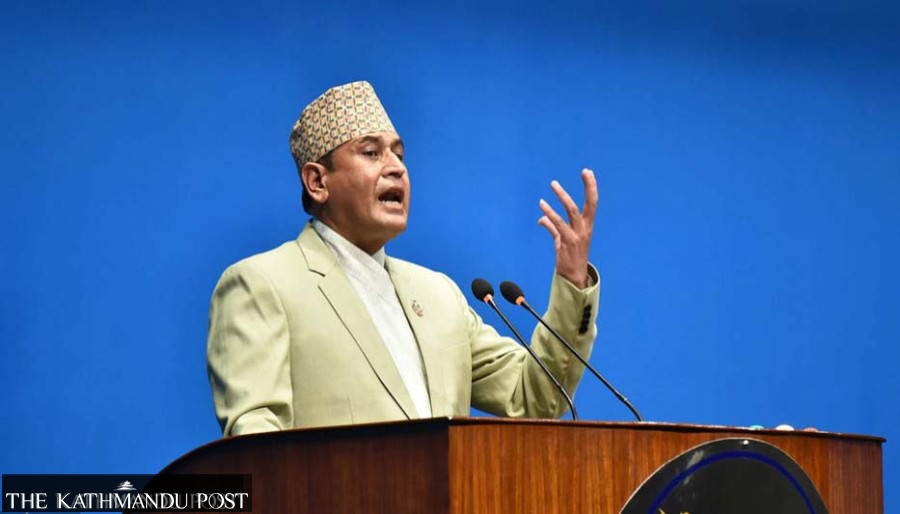Politics
Weeks after quitting lower house panel, Khatiwada returns as joint committee chair
Opposition parties say selection of the same person undermines parliamentary and democratic values.
Post Report
Three weeks after resigning as a chair of the State Affairs and Good Governance Committee of the lower house on moral grounds, Nepali Congress lawmaker Ramhari Khatiwada was appointed chair of the Parliamentary Hearing Committee unopposed on Friday.
The position had been vacant after its previous chair, Ishwari Devi Neupane, resigned to take charge of the State Affairs Committee vacated by Khatiwada. Neupane was elected unopposed to the lower house committee as opposition parties did not field any candidate against her.
Khatiwada had resigned on August 12 after a parliamentary special committee investigating the tampering in the “cooling-off period” provision of the Federal Civil Service Bill, 2024, held him and senior bureaucrats morally accountable.
Announcing his resignation in the lower house, Khatiwada had said, “I want my name to be recorded in history as someone who valued integrity in politics.”
However, just three weeks later he has now taken the chairmanship of a joint House committee which has the members from both the chambers–the House of Representatives and the National Assembly.
“We have failed to understand what is moral and what is immoral,” said Hit Raj Pandey, CPN (Maoist Centre) chief whip in a satirical tone regarding Khatiwada’s appointment.
The opposition claims Khatiwada resigned only after ensuring the chairmanship of the hearing committee. The Nepali Congress leadership had reportedly decided to swap Neupane and Khatiwada as chairpersons of the two parliamentary panels.
Going a step ahead in criticising his appointment, opposition Rastriya Swatantra Party has claimed his appointment undermines parliamentary and democratic values.
“Appointing a person, who had to resign after being directly involved unlawfully in a sensitive matter like the sovereign law-making process of the people and falling into a moral crisis, to an even more important position such as the chairperson of the Parliamentary Hearing Committee is unfortunate,” reads the party’s statement.
The fourth largest party in the House of Representatives, the RSP, has said that individuals with controversial backgrounds should not be given high-level responsibilities again, especially when parliamentary committees are supposed to be institutions trusted by the people.
“The act of reassigning individuals with controversial backgrounds to high-ranking positions has not only undermined the dignity of Parliament but has also harmed the entire foundation of democratic values and principles,” says the statement.
Section 82(4) of the Civil Service Bill endorsed by the State Affairs Committee stated that any employee who has resigned or retired must have completed at least two years before taking another government appointment.
However, alongside the committee’s decision, a sub-section 82 (5) was incorporated into the bill that ran contrary to the earlier clause, allowing civil servants to take another government appointment within two years of their resignation or retirement. The issue came to light only after it was endorsed by the House of Representatives.
While announcing his resignation, Khatiwada had admitted the committee had failed to spot the altered text before endorsement from the lower house plenary, calling it a personal shortcoming but denied committing fraud.
The special probe committee led by Nepali Congress lawmaker Jeevan Pariyar had held the committee secretary Suraj Kumar Dura and Khatiwada morally responsible for the error.
The error from the lower house has already been corrected by the National Assembly which has decided to impose a two-year cooling-off period.
Section 83 of the bill says any official from the federal civil service or other government services who has resigned from, or retired from, a gazetted special class or gazetted first-class position shall not be eligible for appointment to any constitutional, diplomatic or other government position until completing a period of two years.
The bill has been dispatched to the lower house for the approval of the changes the upper house made.




 8.22°C Kathmandu
8.22°C Kathmandu














